Patrick Cockburn: Covering Syria’s Complicated Civil War
"As a journalist, no one tells you something because they like the look of your face, generally," the Independent reporter told Truthdig in an exclusive interview "They tell you to further their own interests or the interests of their party""No one tells you something because they like the look of your face, generally," the Independent reporter told Truthdig".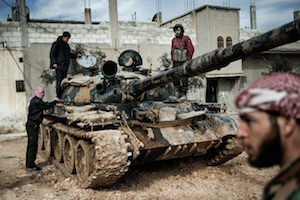
This summer Patrick Cockburn, the Middle East correspondent for England’s Independent newspaper, spent two weeks reporting from Damascus, Syria. I contacted Cockburn by phone to hear about the complexities of covering that country’s underreported civil war, now entering the midpoint of its third year.
Cockburn is regarded as one of the Western world’s most experienced and knowledgeable reporters on the Middle East. As he talked about the country he began covering in the 1970s, his tone was melancholy but unsentimental. This transcript of our conversation has been edited for length.Alexander Reed Kelly:
You’ve been to Syria as a journalist numerous times. What was your objective on this occasion?
Patrick Cockburn: I wanted to do something very simple. This was to find out what the real situation was on the ground politically and militarily. The reporting on this has been so skewed by bias, propaganda, muteness on the government side and second and third hand evidence that people outside Syria — and to a degree inside — don’t know what is happening. The way to do this is simply to travel a lot and to talk to as diverse a group of Syrians as possible. The picture will never be complete but it should be largely true.
Also, as part of this reporting I wanted to compare what I saw and heard reported on Al-Jazeera, The New York Times, Reuters and the AP, which on occasion was plain wrong, but more often partial and incomplete.
AK: How does collecting information in wartime differ from reporting in times of peace?
PC: You’re talking to people in the middle of a war. You have to keep in mind that they are going to be careful what they say. They’re not going to be particularly critical of the government in government-held areas and similarly critical of rebels in rebel-held areas. On the other hand, they have something to talk about. A lot of the time I spend sort of listening to people, refugees, vendors and so on.
One of the things about reporting on Syria is the lack of basic information. I often just go to areas that were being reported on the wires and Syrian television and see if what they were saying is true. Again and again you have reports of a battle in some area and I find there is nothing happening there at all. It’s generally a very ill-reported war. Every area is different. I was first in a big international hotel. It was just me and some U.N. people. Later I was in the Christian quarter that was being mortared by a rebel held area. When traveling you come to government checkpoints every few kilometers. You try to glad-hand your way through those.
AK: Given the difficulty of confirming the accuracy of what many people say to you, how do you determine what is true?
PC: You try to find out as much as you can from a lot of people. You try to establish basic facts, what happened in an area, for instance. Bear in mind that people aren’t going to tell you things that could get them in enormous trouble unless they feel really compelled to do so. I depend a lot on chance meetings because I try to get a variety of opinions. I also like to go to military hospitals. You know they’ve been in action so they know what’s happening.
A lot of this means being a good listener. I was surprised how much Syrians did talk to me. You can say about Syria what you used to say about the Soviet Union, that anyone who was 30 in 1980 is bound to have an interesting life story.
AK: How did you stay safe?
PC: It’s important to get on with people, above all at checkpoints. It’s best not to act nervous, but also not to be reckless. While driving, for example, you learn to watch oncoming traffic. If there’s no one on the road then you know there’s some reason you can’t get through — traffic jams, explosions, etc. Sometimes you can be stuck for three or four hours.
AK: Because you’ve traveled to Syria since the ’70s you have a long view of the country’s recent history. How did covering the region change in that time?
PC: I used to go quite a lot in the ’70s and ’80s. I was in Damascus in 1982 for the Israel invasion of Lebanon and for years afterwards. Syria for a long time wasn’t the center of journalistic attention. One, you needed visas to get there. Second, there wasn’t a lot happening. It was tightly controlled by Hafez al-Assad, Bashar’s father. I would go occasionally, but usually I would go somewhere else. I would say of journalists in general there wasn’t a capital of knowledge about Syria before 2011. It’s something people weren’t interested in. There are not many well-informed books on modern Syria.AK: But you returned more frequently with the start of the uprising.
PC: I was there two or three times last year. The government is its own worst enemy in the sense that it creates a vacuum of information that tends to be filled by the opposition giving a very skewed idea of what’s happening there. For example it was believed that Assad would go down quickly like Gadhafi. I didn’t think it was true. You knew the government was still in control if you walked around.
AK: In a time of continuous uprisings and unrest throughout the Arab world, why do you focus on Syria? What in particular interests you?
PC: I find everything about it interesting. It isn’t just one conflict there. It started, you could say, as an uprising against dictatorship. But it was also a sectarian movement, the Sunni against the Alawites and the rural underclass against the cities and the powers that be. And it involves more than just Syria. It involves the battle between Shia and Sunni throughout the Arab world and it is related to the political struggle between the U.S., Israel and Iran, with the West and the Syrian opposition on one side and Russia, Iran, Hezbollah and Syria on the other. It’s a sort of Cold War reborn. All of these disputes occur simultaneously.
AK: What about leaving this place every few months? You must have relationships with people you get close to. When you leave, you’re not certain some of them will be alive when you return.
PC: It’s always tense. It’s always difficult to make these chops and changes, particularly if you’re working with somebody where it’s dangerous. They’re a big part of your life and then they’re gone. The work can be isolating. It’s kind of the nature of international journalism. If you’re based in different places, you go to Moscow and Beirut or wherever and you have to build a life in each of those places. It probably gets more difficult the older you get, rebuilding your life. On the other hand you’re used to it.
AK: How do you become comfortable as a foreign correspondent when you arrive in a new place?
PC: Well, in a lot of these places you’re an outsider. You don’t know the society or how it works. So even when you’re not working you’re learning to live wherever you work. You tap into all sorts of information. It’s crucial to have some local person helping you. If you take Syria, there are actually very few books with information on how this works. If you go to Moscow, there are actually quite a few good books you could read. It all takes time. It can’t be done fast.
Iraq is a very complicated place. There are many things to do with class, history, etc. that are not at all obvious. You could see when the American army was there initially they knew nothing. But after three or four years they had a pretty good grip on how the whole thing worked.
As a journalist you spend a lot of time by yourself. If you’re not going out in the evening, you stay in and read. Of course, the stress builds up over time, especially when you’re getting shelled, where the roads are dangerous, and so on. Most people can sustain a bit of violence for a day or two, but if it goes on and on, that’s what grinds people down.
AK: Much of what I see coming out of the Middle East is provided by nonprofessional reporters. If there’s a protest somewhere, we at Truthdig will sometimes post videos taken by citizens and uploaded on YouTube. You watched the rise of so-called citizen journalism in places you covered during the course of your career.
PC: Compared to times in the past, whole areas of the globe are poorly covered. Governments continue to make it extremely difficult for journalists to do their job. One thing that Syria and Libya has driven home is that it’s vital to have professional reporters on the ground. Instead, you often have a lot of citizen propagandists. All their information tends to be strongly biased. It is often repeated by the wires and television as if this is objective information, as if you can rely on what people say. When the government is silent you end up relying on the victims of atrocities.
I do think the quality of coverage has gone down in many places because you have YouTube, particularly in the last 10 years. It’s especially true of Syria. If there was an explosion in a civilian area, was it one of 500 as people claim, or was it the only one around? I think the media goes on accepting this stuff as if it were true. They don’t know when they’re being manipulated. Say some people get their heads chopped off by supposed rebels. This would be good news for the government. But you don’t actually know who chopped those heads off. How do you know it’s not government intelligence officers making a video that will show the opponent in a bad light? In most places the number of really good correspondents is really quite limited but an awful lot depends on them.AK: Right. An overabundance of information with fewer journalists makes verification harder. Blogs, which lack fact-checkers and teams of editors and researchers, have limited editorial authority.
PC: Yes. I think this will even out when people realize that all these things that are cool and new, YouTube, blogs, etc., are very open to being manipulated or falsified. It’s worth remembering that early on in the Syrian uprising there was an interesting blog attracting attention as a supposed lesbian dissident in Damascus, but it turned out to be a man in Istanbul, Turkey. I guess some people drew the conclusion that blogs purportedly from the scene can be highly biased and possibly fake.
AK: You say that the Syrian civil war is underreported. What in particular is going misunderstood about this conflict and the society behind it?
PC: I think a lot of people underestimate the social element of the conflicts. You could say before this happened there was a big drought in the mid-2000s. A lot of ruined farmers turned Syria into a dust bowl. One of the little reported aspects of the Arab uprising is the role of leaders who listened to the IMF, cut subsidies and privatized public services, which usually meant selling off state assets cheap to their cronies. This is one of the things that has destabilized the regime. The people in the streets know the money is being concentrated in the guys in the center. Three years ago 3 million Syrians were living in dire poverty. Neoliberalism there — as everywhere — increases inequality. It pushed people to the edge of starvation, so it’s not surprising these guys didn’t feel they owed the regime anything and supported a rebellion.
While it’s true that a big element in Syria is the religious difference between Sunni and Alawites, I think that aspect is over reported, while the social element is underreported. People who are pissed off are easy to destabilize. The Muslim Brotherhood was absolutely involved, a lot of support for the 2011 uprising came from trade unions in the Nile Delta. When you have a lot of unemployed young men who are going nowhere, it’s quite easy to recruit them to the opposition. So there was a lot of tinder around waiting to be ignited.
I think police states thought it smart to try to stamp out the first signs of dissent but in fact they spread the fire. Perhaps more important than anything was social media [and] Al-Jazeera satellite television, which everybody watched.
AK: So with all these factors standing against the Syrian government, why is Assad still in charge? Is the government more popular than the foreign press depicts?
PC: It’s not that the government is more popular. It’s that the opposition has failed by any measure to present itself as an attractive alternative to Assad. People ask themselves: “Do we want these head-choppers instead?”
AK: What about the role of foreign so-called academic experts in shaping our understanding of the conflicts?
PC: It is generally better to listen to serious journalists than academics, because academics are usually not there doing foot on the ground reporting. Locals often have pretty sophisticated ideas of what’s going on in their areas, about their political and economic circumstances. I’ve always preferred talking with them to listening to think tanks that haven’t been there anyway. I find this rather astonishing thing in British and American journalism, referring to think tanks without giving any reason to suppose these people are really expert. They don’t know what’s going on because they haven’t been there. It’s amazing to watch CNN or see an article in The New York Times citing some think tank in Washington but there is never any explanation as to why they are an authority.
Journalists can be trouble too. I’m always skeptical of people covering civil wars who assume there are white hats on one side and black hats on the other. There was very sophisticated propaganda put out by both sides in Belfast in the 1970s. But in some ways a lot of the reporting and analysis at that time was more sophisticated than it is at present. Still, as a journalist, no one tells you something because they like the look of your face, generally. They tell you to further their own interests or the interests of their party. As a journalist, you like to think of yourself as a fearless investigator. You rarely admit you’re often just a conduit for information.
Your support matters…Independent journalism is under threat and overshadowed by heavily funded mainstream media.
You can help level the playing field. Become a member.
Your tax-deductible contribution keeps us digging beneath the headlines to give you thought-provoking, investigative reporting and analysis that unearths what's really happening- without compromise.
Give today to support our courageous, independent journalists.

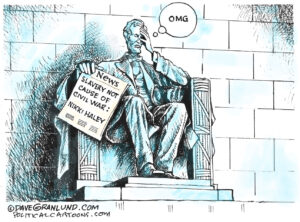

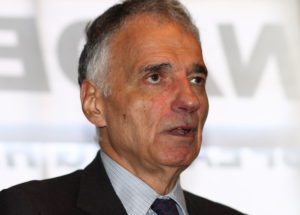
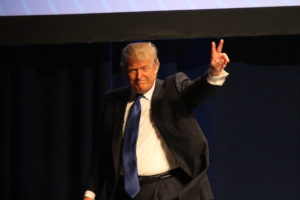
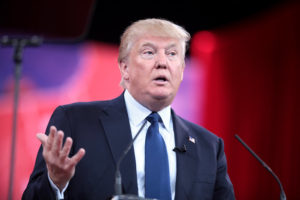
You need to be a supporter to comment.
There are currently no responses to this article.
Be the first to respond.